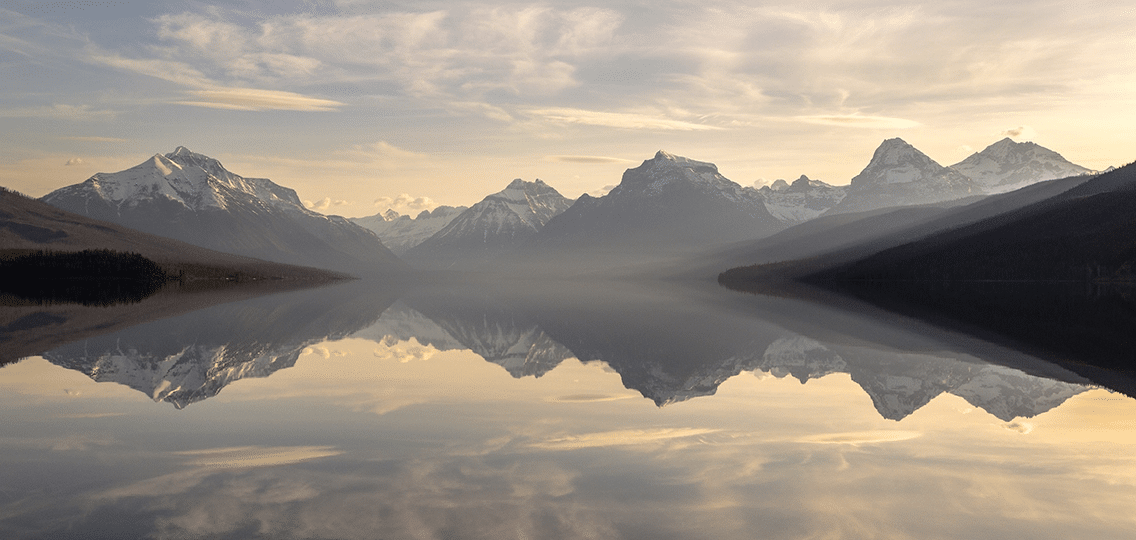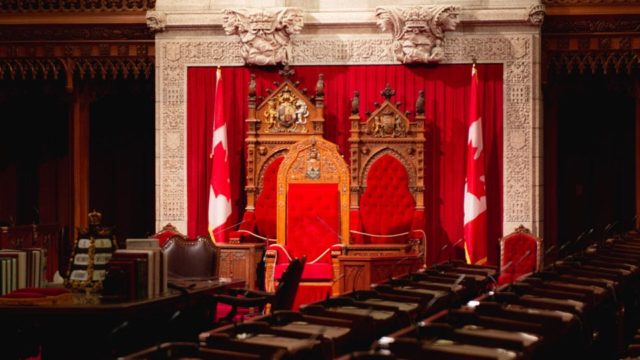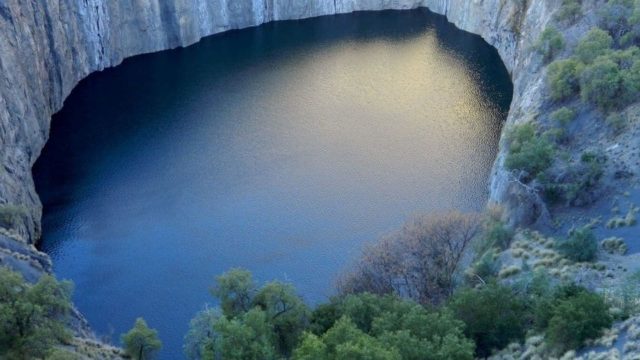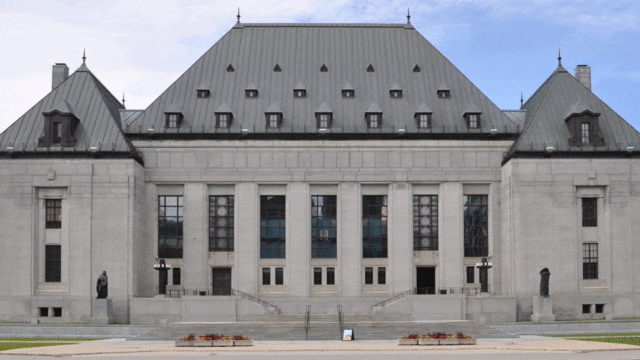The core of our work at Ecojustice is making sure that governments and industry adhere to laws and regulations that reduce greenhouse gas emissions, prevent people in Canada from being exposed to toxic pollution, and protect at-risk species and biodiversity.
Through our public interest litigation and pushing for stronger environmental laws and policies, we defend nature, combat climate change, and fight for a healthier environment.
But how do we make sure that the law is enforced?
Governments, whether federal, provincial or municipal make laws and policies that impact the environment. These include laws that require governments to hit emission targets, determine the kind of chemicals we’re exposed to in our everyday lives, and provide protection to endangered species. These laws in turn prohibit industry and other people from harming the environment – whether that is releasing pollutants into the air or destroying fish habitat.
But governments sometimes do not follow their own laws when making decisions about our environment, and sometimes they fail to challenge industry when their actions break environmental rules and regulations.
That’s where Ecojustice comes in. Our mission is to force government and industry to follow the law, and when they fail to do so, we take them to court. We use the power of the law, including judicial reviews and private prosecutions, to make sure that when the governments fail to follow their own law, and industry tries to skirt laws, we’re ready to step in.
Why do we need enforceable environmental laws?
Strong environmental laws are important to keep those in power, whether they are government ministers or industry executives, accountable for not putting us and our environment in danger.
Although Indigenous Peoples practiced large-scale agriculture and land and range management, their methods were often synergistic with the natural environment. Indigenous laws helped shape an ecosystem that sustained all life forms. Settlers brought a materialistic view of nature, viewing it as a commodity to be exploited for material gain, and suppressed Indigenous governance systems and legal orders that had managed land and resources for millennia. Consequently, species, habitats, human health and increasingly the stability of the natural systems all life depends on were put at risk.
By the end of Second World War, industrial exploitation of the natural environment had taken its toll and there was growing concern from the public about the impact this was having on the world around us. It was clear that enforceable laws were needed to counteract this destruction.
Throughout the 1960s and into the 1970s, communities across Canada began to organize for better protection of our natural world. These groups forced governments to respond and in a single decade, federal and provincial governments established ministries or departments of the environment, legislation to protect the environment and environmental assessment laws.
How does Ecojustice help enforce the law?
Ecojustice uses the power of the law to defend nature, combat climate change, and fight for a healthier environment. We go to court to make sure that governments across Canada follow the law and to hold industry to account when it is found breaking these rules.
This has brought our lawyers before some of the highest courts in Canada to stand up for and protect the environment.
Carbon pricing – ensuring that national minimum standards can be enforced
The climate emergency requires collective action from all governments across Canada, and enforceable laws that can begin to reduce emissions.
Ecojustice has helped ensure that federal environmental law could be enforced when provinces failed to pitch into the collective effort of reducing emissions by putting a price on carbon.
In 2018, the federal government introduced the Greenhouse Gas Pollution Pricing Act as a backstop aimed at provinces that fail to implement a comparable carbon pricing strategy of their own. The governments of Alberta, Ontario and Saskatchewan launched separate constitutional challenges of this law, claiming that it was an overreach of federal powers into provincial affairs.
Ecojustice lawyers intervened in these cases, representing the David Suzuki Foundation and the Athabasca Chipewyan First Nation. In court, we argued that carbon pricing was necessary to fight the climate emergency and should be applied to provinces that fail to act.
These three cases went all the way to the Supreme Court of Canada, which ruled in March 2021 that federal carbon pricing is constitutionally sound and essential in the fight against the climate crisis.
That means that when provinces fail to put an adequate price on carbon, federal law can be enforced. Ultimately, Ecojustice’s intervention, in this case, has ensured that every province and territory in Canada must put a price on carbon, which will reduce C02 emissions and thereby help stave off the worst effects of the climate crisis.
De Beers Private Prosecution – enforcing laws against industry
When the government won’t enforce the law, Ecojustice sometimes relies on private prosecutions to hold industry accountable. Most recently, our lawyers won a long-fought lawsuit against one of the largest diamond mining companies in the world for failing to provide mercury monitoring data.
De Beers Canada’s Victor Mine, which operated between 2008 and 2019, is nestled in the James Bay lowlands in the Attawapiskat watershed – part of the largest wetland on the planet.
When the Ontario government gave De Beers the green light to mine for rough diamonds, it outlined conditions in its approval – one of them being that De Beers must report methylmercury and total mercury levels at its downstream monitoring stations.
Methylmercury is a toxin that bioaccumulates in the surrounding watershed and aquatic life and can make its way up the food chain into humans. The reporting program was intended to act as an early warning system in case of heightened methylmercury levels downstream from the mine.
Environmental activists discovered that De Beers had not reported information for five out of nine monitoring stations between 2009 and 2014, in violation of the terms of its permit. When the province failed to hold De Beers accountable for this unlawful failure to report, Ecojustice launched a private prosecution to hold the company accountable to the terms of its permit.
In 2021, after a long legal battle, De Beers pleaded guilty to one count of failing to report mercury monitoring data from the Victor Mine. As per the terms of the resolution, De Beers was forced to publicize all past and future annual mercury monitoring reports on its website. Additionally, the company agreed to pay a nominal fine and donate $50,000 to charity.
Is environmental law perfect?
It is no secret that the enforcement of environmental laws in Canada is far from perfect. When profits are put ahead of the future of the planet, the health of people or the protection of biodiversity, groups like Ecojustice step up to the plate and hold those in power accountable.
Our scientific knowledge is constantly evolving, and we are discovering new ways to ensure that we have a safe and secure world to pass on to future generations. But often the laws that are supposed to protect our environment are out of touch. That is why Ecojustice pushes for strong environmental laws that will benefit everyone.
When government and industry break the law, we are more than ready to go to court to make sure that our laws are enforced. In the coming months, our lawyers will be in court to make sure financial penalties levied against Imperial Oil for releasing excessive amounts of sulphur dioxide are upheld. We’re also fighting for an immediate ban on pesticides that are harmful to humans and other life forms.
In a time of climate chaos, environmental pollution and the loss of biodiversity, the world needs good lawyers!






